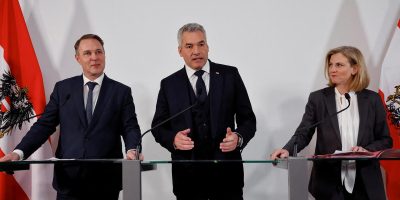
Ibraahim Maxamed Yuusuf wuxuu muddo saddex bil ah wajahayaa shaqo la’aan saamaysay qoyskiisa oo tobon qof ah. Waxaa markii ugu horraysay ka istaagtay shaqo xoogsi ah oo uu ku shaqaysanayay muddo 15 sano ah.
Wuxuu ka mid yahay in ka badan konton rag ah oo ku tiirsanaa samaynta burjikooyinka cuntada lagu kariyo oo ay ku iibin jireen magaalada Baydhabo. Dadkii ku xirnaa ayaa u weecday isticmaalka gaaska, taas oo saamayn wayn ku yeelatay.
Ibraahim wuxuu sheegay in uu noqday baagamuuddo aan guriga dhaafin tan iyo markii ay ku dhacday suuq la’aantu. Lacag u dhaxaysay $10 ilaa $15 oo uu si maalinle ah uga heli jiray ayuu sheegay in ay meesha ka baxday, taas oo qoyskiisa bidday nolol xumo aysan horay u mudan.
“Muddada aan shaqo la’aanta noqday culeesyada ugu waaweyn ayaa waxay ahaayeen in reerkayga ay cuno la’aan noqdeen oo raashiinkii saddexda waqti aan la heleyn. ku dhowaad waxan shaqo la’aan ahay sedex bilood. Saddexda biloodna waxa lagu nool yahay shaxaad qofkoo saaxibkaa ah wax weydii iyo meelaha wax ka soo shaxaad sidaas ayaa lagu nool nahay.”
Ibraahim aya sheegay in shaqo la’aanta ay u dheer tahay daymo gaaraya $250 oo iskugu jira kirada guriga ay degan yihiin iyo qaar uu raashin ku qaatay. Wuxuu tilmaamay in laga doonayo in uu iska gudo sida ugu dhaqsaha badan.
Wuxuu subax kasta u kalahaa magaalada isaga oo raadinaya shaqo u baddesha tiisii hore. Wuxuu naawinayaa in uu barto tolidda dharka inkasta oo uusan hayn dhaqaale uu ku tago xarumaha lagu barto.
Ninkan ayaa sheegay in uu hayo ku dhawaad toban burjiko oo u yaalla guriga, kuwaas oo had iyo jeer uu u raadiyo cid ka iibsata, balse dadku aysan ka qaadan. Wuxuu tilmamay in ay u shegaan in aysan xilligaan u baahnayn nuuca dhuxusha ku shaqeeya oo ay gaaska door bidayaan.
“Dhamaan macaamiilkii nagu xirnaa waxay uguureen dhijitaal. Waxaa lakeeney Baybi Gaas wax la yiraahdo, waxayna ku shubtaan gaas. Waxay ahayd farsamada kaliya ah oo aan ku shaqeysaneyney oo magaalada nagu haysey oo aan baraney waxay ahayd burjiko sameynta.”
Dhamaan ragga ka dhaqayn jiray burjikooyinka ayaa si isku mid ah u mutay nolol xumada saamaysay maaddaama aysan haysan il kale oo dhaqaale. Waxay dantu ku qasabtay in ay dawarsadaan dadka magaalada ku nool si ay hal mar dabka ugu shidaan reerahooda.
Maxamuud Iidow Xasan oo ka mid ah dadka ay arrintaan ku dhacday wuxuu irdaha u laabay bishii Sebteembar sanadkan dukaan yar oo uu ku iibin jiray, kuna samayn jiray Burjikooyinka markuu laba bil waayay cid wax ka iibsata.
Wuxuu sheegay in hadda qoyskiisa oo sagaal qof ah ay wajahayaan nolol-xumo aad u liidata. waxa uu tilmaamayy in 24 saacba ay hal mar dabka saartaan raashin ay ku cawiyaan dadka dariska la ah ama uu ka soo daynsado dukaanno ay horay macaamiil u ahaayeen.
“Adeegga oo tukaanka la igaga leeyahay waxa weyaan $120, wax gacanteena ku jira oo aan iskaga bixinana malahan.”
Maxamuud ayaa shegay in shaqadan oo uu soo billaabay sanadkii 2016 uusan weligiis la kulmin suuq xumo gaarsiisan in uu hawshiisa ka fariisto sanadkan ka hor. Wuxuu tilmamay in hadda uusan hayn xeelad uu ku maaran karo nololsha qoyska oo shaqada joogsatay ay u ahayd ghalka meel oo ay ku tiirsanaayeen.
Wuxuu xusay in uu ka heli jiray shaqadiisa ugu yaraan lacag gaaraysay $20 maalintii taas oo si buuxda ugu filneed. Wuxuu Sheegay in uu ka welwelsan in ay ka istaagtay shaqadaas oo uu ka filayay mutaqbal waara. Wuxuu intaas raaciyay in uusan hadda hayn qaab kale oo uu ku maarayn karo nolosha qoyska oo kaligiis ku tiirsan.
Maxamuud oo 38 sano jir ah ayaa sheegay in muddadii uu shaqadan waday uusan wax keyd ah meel ka dhigan oo uu la tacaalayay nolosha reerka oo kali ah. Waxuu xusay in uusan ku baraarug samayn in shaqada ay maalin ka istaagi karto, taas oo keentay in uusan u diyaar garoobin.
Maxamuud ayaa sheegay in uu hadda ka rajo dhigay shaqada Burjikooyinka, markii arkay sida ay dadku uga guureen isticmaalkeeda. Wuxuu aaminsan yahay in aysan jirin fursad ku hormarin karaan shaqadoodii oo ay dib ugu laaban karaan.
Xamdi Cali Cismaan waxay ka mid tahay dadka macaamiisha u ahaa raggan oo hadda u weecday gaaska. Waxay sheegtay in ay ku dooratay markay aragtay in uu ka sahlan yahay isticmaalkiisa dhuxusha, uuna ka qarash yar yahay. Waxay aaminsan tahay in aysan jirin baahi ay dib ugu laaban karto burjikooyinka oo ay u aragto wax aan faa’iido fiican u lahayn dadka.
Waxay sheegtay in qoyskeeda oo toban qof ah ay bil kasta isticmaalayeen ugu yaraan labo kiish oo dhuxul ah haddana uu ku filan tahay hal haan oo gaas ah, taas oo ka dhigan in laban laab ay u baaqdeen dhaqaalihii ka baxayay bisha dhan.
“Dhuxul soo iibi wakhti ayay nagu qaadan jirtey. Haddii loor dhuxul aad maanta soo gadato bil kuuma gaarayo qarashaadkii ku baxayay aad ayaan uga raysanay.”
Xamdi ayaa sheegtay in aysan qorshaheeda ku jirin in ay dib ugu laabato isticmaalka dhuxusha oo ay u aragto in aysan jirin baahi ku celin karta. Waxay intaas ku dartay in hadda ay kula taliso dadka kale in ay u soo weecdaan gaaska oo ay u aragto in uu leeyahay faa’iido wax ku ool ah.
Dhanka kale gaaska ayaa badbaado u ah dhirta la dhuxuleeyo oo waayihii danbe aad ugu soo batay deegaanada maamulka Koofur-galbeeed. Wuxuu u muuqdaa mid arrintaas meeesha ka saaraya maaddama uu yareeyay isticmaalka dhuxusha.
Xigasho: Radio Ergo
We welcome the submission of all articles for possible publication on WardheerNews.com. WardheerNews will only consider articles sent exclusively. Please email your article today . Opinions expressed in this article are those of the author and do not necessarily reflect the views of WardheerNews.
WardheerNew’s tolerance platform is engaging with diversity of opinion, political ideology and self-expression. Tolerance is a necessary ingredient for creativity and civility.Tolerance fuels tenacity and audacity.
WardheerNews waxay tixgelin gaara siinaysaa maqaaladaha sida gaarka ah loogu soo diro ee aan lagu daabicin goobo kale. Maqaalkani wuxuu ka turjumayaa aragtida Qoraaga loomana fasiran karo tan WardheerNews.
Copyright © 2024 WardheerNews, All rights reserved
















